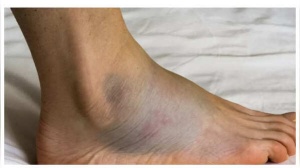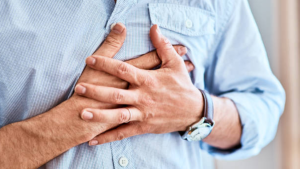Fitness and wellness are top priorities, but bone health often gets overlooked. Neglecting your bones can significantly impact your quality of life, especially as you age. The risk of conditions like osteoporosis increases with age, leading to fractures, mobility issues, and a decreased quality of life. The good news is that it's never too late to start taking care of your bones. By making specific lifestyle adjustments, you can strengthen your bones and protect them in the long run. Those in their 20s can especially benefit from focusing on bone health now.
Here are five effective strategies to boost bone health and reduce the risk of osteoporosis:

Calcium and vitamin D are essential nutrients for maintaining strong bones. Calcium is the primary building block, crucial for maintaining bone density. Vitamin D facilitates calcium absorption, preventing decreased bone density and reducing the risk of fractures and conditions like osteoporosis.
Good sources of calcium include dairy products like milk and yogurt, leafy green vegetables, and fortified foods. Vitamin D, often called the "sunshine vitamin," can be obtained from fatty fish, egg yolks, or supplements. The body also naturally produces vitamin D when exposed to sunlight.

Protein isn't just for muscles; it's also vital for bone health. Collagen and amino acids derived from protein contribute to approximately half of the bone's volume.
Enhance your protein intake by including lean meats, fish, eggs, beans, and tofu in your diet. Studies suggest that combining protein with calcium-rich foods amplifies the benefits. However, be mindful of your protein intake, as excessive amounts can strain the kidneys in some individuals.

One of the most effective things you can do for your bones is to quit smoking and drinking alcohol. These habits can significantly harm your bone health. Smoking impairs blood flow to the bones, hindering their ability to repair and rebuild. A 2022 study indicated that smoking is linked to a 40% higher risk of fractures.
Alcohol consumption interferes with calcium absorption and bone formation, contributing to chronic health issues. Eliminating smoking and alcohol can dramatically reduce these risks.

Exercise is a powerful tool for maintaining bone health. Incorporate exercises specifically designed to strengthen bones. Weight-bearing exercises such as walking, jogging, and dancing stimulate bone formation.
Resistance training, which includes lifting weights or using resistance bands, strengthens bones by applying stress that triggers growth. Balance and agility exercises, like tai chi or yoga, can help reduce the risk of falls, a major cause of osteoporosis-related fractures. Aim for 30 minutes of weight-bearing, resistance training, or agility exercises two to three times per week.
Early screening can detect osteoporosis before fractures occur. If you have risk factors like a family history of the disease, early menopause, or long-term steroid use, consult your doctor about getting a bone density test. Women over 65 and men over 70 should undergo routine screenings, but younger adults with risk factors might need earlier testing. Early detection can improve treatment outcomes, and lifestyle changes can help prevent further bone loss.
NB: This information is based on internet research and is intended for general knowledge only. It should not be considered a substitute for professional medical advice.
Newer articles
Older articles
 5 Overlooked Warning Signs of Colon Cancer: Early Detection Saves Lives
5 Overlooked Warning Signs of Colon Cancer: Early Detection Saves Lives
 Shukla's ISS Arrival Heralds New Era for Indian Space Exploration; Gaganyaan Mission Looms
Shukla's ISS Arrival Heralds New Era for Indian Space Exploration; Gaganyaan Mission Looms
 Vijay Sethupathi Apologizes Amid Controversy Over Son Surya's Film 'Phoenix'; Thalapathy Vijay's Support Revealed
Vijay Sethupathi Apologizes Amid Controversy Over Son Surya's Film 'Phoenix'; Thalapathy Vijay's Support Revealed
 Android Security Alert: Government Warns of Critical Flaws Exposing User Data
Android Security Alert: Government Warns of Critical Flaws Exposing User Data
 Ashada Gupt Navratri 2025: Dates, Significance, and How to Observe This Hidden Festival
Ashada Gupt Navratri 2025: Dates, Significance, and How to Observe This Hidden Festival
 Skin Deep: 7 Warning Signs on Your Skin That Could Signal Heart Trouble
Skin Deep: 7 Warning Signs on Your Skin That Could Signal Heart Trouble
 Smith Eyes Grenada Test Return After Injury Layoff
Smith Eyes Grenada Test Return After Injury Layoff
 Staying Hydrated May Significantly Lower Risk of Heart Failure, New Study Suggests
Staying Hydrated May Significantly Lower Risk of Heart Failure, New Study Suggests
 Moto G54 Price Slashed in India: Check Out the New, Lowered Costs
Moto G54 Price Slashed in India: Check Out the New, Lowered Costs
 Gambhir Sidelines Pant's Twin Tons After India's Test Loss, Emphasizes Team Performance
Gambhir Sidelines Pant's Twin Tons After India's Test Loss, Emphasizes Team Performance